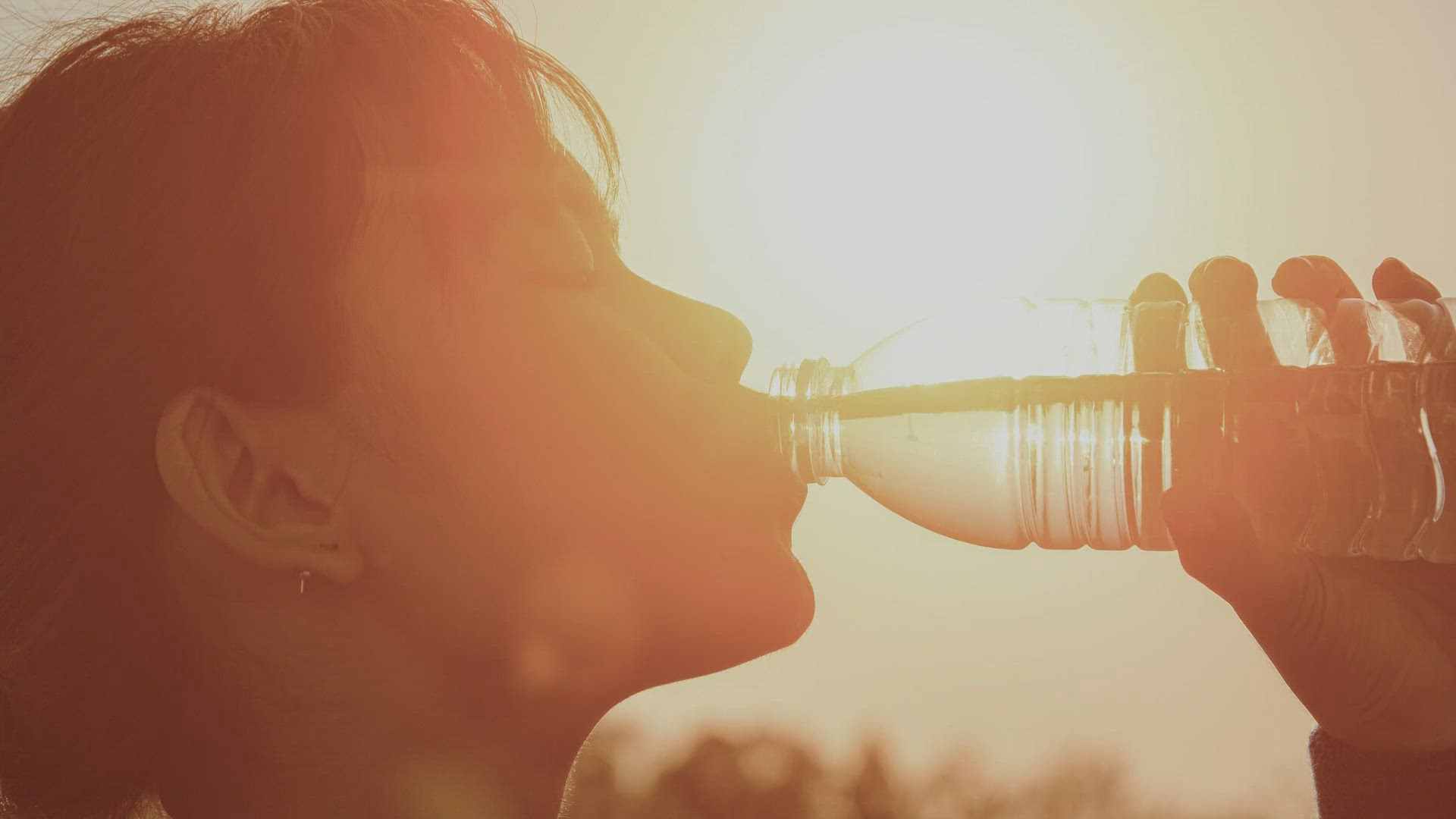ST. LOUIS — Excessive heat is one of the leading weather-related causes of death in the U.S., according to the National Weather Service.
Last summer alone, the death certificates of more than 2,300 Americans mentioned the effects of excessive heat, the highest number of heat-related deaths in 45 years. Studies suggest that climate change will continue to increase the severity and frequency of extreme weather conditions.
As temperatures begin to rise this summer, here are some things you can do to stay safe.
Protect yourself from the heat
Being outdoors in the summer heat can expose you to the sun's harmful rays. To help avoid this, the Centers for Disease Control and Prevention recommends that you:
- Drink plenty of non-alcoholic fluids.
- Opt for loose, light-colored clothing.
- Wear sunscreen with SPF 15 or higher that says "blocks UVA and UVB" or "broad spectrum" on the label. Reapply every two hours or follow the instructions on the packaging.
- Wear a wide-brim hat and sunglasses.
- Stay in the shade and plan outdoor activities for cooler parts of the day.
Monitor signs of heat-related illness
The body normally cools itself off by sweating, but during extreme heat, perspiration might not be enough. Heat-related illnesses, such as heat stroke or heat exhaustion, happen when a person's body temperature rises faster than it can cool itself down and can cause damage to the brain and other important organs, according to the Centers for Disease Control and Prevention.
Older adults, children and those with mental illness and chronic diseases are at the highest risk for heat-related illness, according to the CDC, but even healthy young, healthy people can be affected if they participate in strenuous physical activity during hot weather.
Here are some symptoms of heat-related illness to watch out for:
- Nausea.
- Headaches.
- Dizziness.
- Weakness.
- Heavy sweating.
- Fainting.
- Fast or weak pulse.
If you or anyone you know experiences these symptoms, get out of the sun immediately and try to cool off.
If more severe symptoms, such as lack of sweating, body temperature rising to 106°F or higher within 10-15 minutes or lack of consciousness occur, seek medical attention immediately.
Escape the heat
Those without air conditioning at home can escape the heat at a designated cooling center, shopping mall or public library.
The Missouri Department of Health and Senior Services has compiled a map of cooling centers around the state and in the Metro East. Click here or use the map below to find a cooling center near you.
Apply for assistance
Having trouble paying your utility bill? Missouri and Illinois residents can apply for government assistance with paying their utility bills through the Low Income Home Energy Assistance Program.
Local nonprofit Cool Down St. Louis helps seniors, disabled and low-income community members pay their energy bills and even donates air conditioners to those in need.
To watch 5 On Your Side broadcasts or reports 24/7, 5 On Your Side is always streaming on 5+. Download for free on Roku, Amazon Fire TV or the Apple TV App Store.

